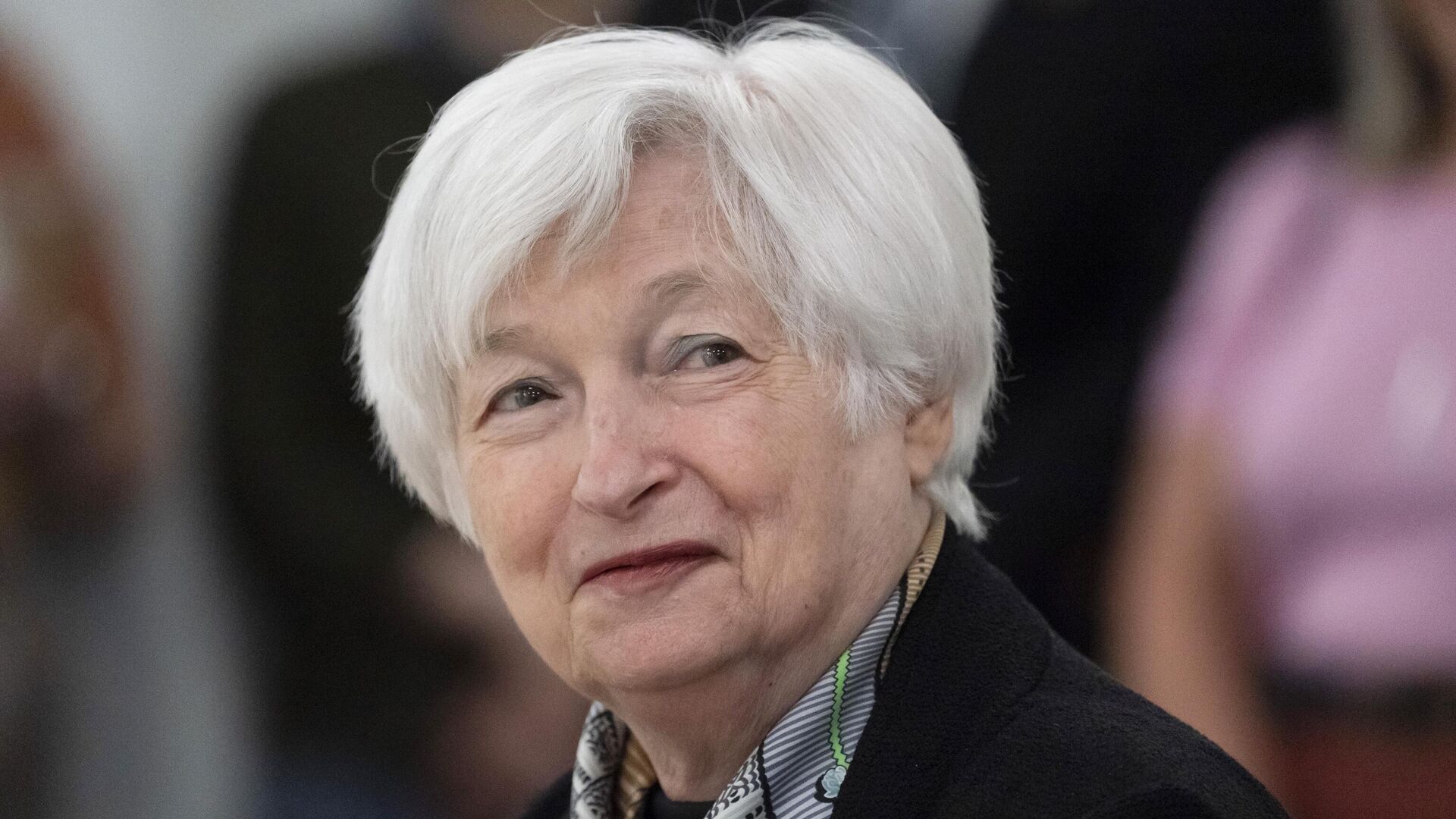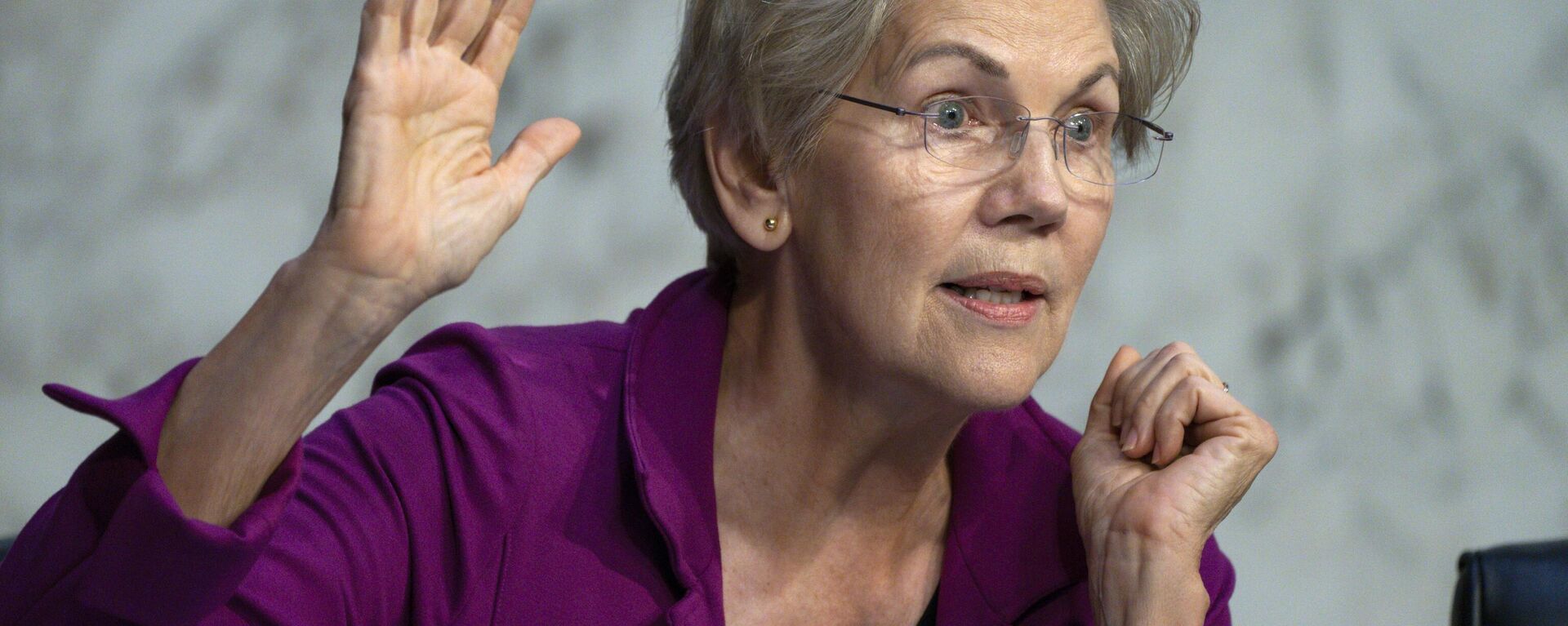https://sputnikglobe.com/20230316/our-banking-system-is-sound-yellen-tells-congress-decisive-actions-stabilized-financial-markets-1108477844.html
'Our Banking System is Sound': Yellen Tells Congress 'Decisive' Actions Stabilized Financial Markets
'Our Banking System is Sound': Yellen Tells Congress 'Decisive' Actions Stabilized Financial Markets
Sputnik International
While the Federal Reserve has raised interest rates in an attempt to quell historically high inflation, the aggressive rate hikes have also devalued bonds into... 16.03.2023, Sputnik International
2023-03-16T17:53+0000
2023-03-16T17:53+0000
2023-03-16T17:53+0000
americas
banking system
janet yellen
us federal deposit insurance corporation
us
https://cdn1.img.sputnikglobe.com/img/07e7/01/19/1106674312_0:97:3073:1825_1920x0_80_0_0_fda382673f4b28a9604e4107f2c34d91.jpg
Less than a week after two of the country’s largest bank collapses in history, US Treasury Secretary Janet Yellen told Congress the country’s banking system was not at risk.She pointed to the federal government’s "decisive and forceful actions" to shore up confidence in the banking system, which included making additional cash available to banks that might need it, and taking over both Signature Bank and Silicon Valley Bank (SVB) to pay off up to $250,000 each of their depositors’ accounts.The White House's move has been heavily criticized by Republicans for covering investors' risky behavior with taxpayer money, although US President Joe Biden has claimed the payouts will come purely from banks' payments to the Federal Deposit Insurance Corporation (FDIC), a government-owned entity used to prevent bank runs.However, Crapo also told US media that more regulation would not have solved the problem. Democrats have pointed to a 2018 law that reduced bank investment oversight as having allowed the problems at Signature and SVB to go undetected.Numerous European banks suffered big losses on Wednesday and several American banks also suffered from the crisis before the Swiss National Bank and the country’s financial regulators stepped in to say they would give Credit Suisse extra cash if necessary. The bank immediately availed itself of approximately $53.7 billion from the central bank.On Thursday, the Zurich-based bank announced it was selling off $3 billion in debt securities in euros and dollars.
https://sputnikglobe.com/20230313/sen-warren-pins-blame-for-bank-collapses-on-congress-for-weakening-financial-rules-1108353175.html
americas
Sputnik International
feedback@sputniknews.com
+74956456601
MIA „Rossiya Segodnya“
2023
News
en_EN
Sputnik International
feedback@sputniknews.com
+74956456601
MIA „Rossiya Segodnya“
Sputnik International
feedback@sputniknews.com
+74956456601
MIA „Rossiya Segodnya“
banking system, janet yellen, us federal deposit insurance corporation, us
banking system, janet yellen, us federal deposit insurance corporation, us
'Our Banking System is Sound': Yellen Tells Congress 'Decisive' Actions Stabilized Financial Markets
While the Federal Reserve has raised interest rates in an attempt to quell historically high inflation, the aggressive rate hikes have also devalued bonds into which investors have sunk large quantities of capital, increasing uncertainty as to how much cash banks can actually produce on demand.
Less than a week after two of the country’s largest bank collapses in history, US Treasury Secretary Janet Yellen told Congress the country’s banking system was not at risk.
"I can reassure the members of the committee that our banking system is sound, and that Americans can feel confident that their deposits will be there when they need them," Yellen told the Senate Finance Committee on Thursday. "This week’s actions demonstrate our resolute commitment to ensure that our financial system remains strong and the depositors’ savings remain safe."
She pointed to the federal government’s "decisive and forceful actions" to shore up confidence in the banking system, which included making additional cash available to banks that might need it, and taking over both Signature Bank and Silicon Valley Bank (SVB) to pay off up to $250,000 each of their depositors’ accounts.
US Sen. Mike Crapo (R-ID), said at the hearing he was “concerned about the precedent of guaranteeing all deposits and the market expectation moving forward.”
The White House's move has been heavily criticized by Republicans for covering investors' risky behavior with taxpayer money, although US President Joe Biden has claimed the payouts will come purely from banks' payments to the Federal Deposit Insurance Corporation (FDIC), a government-owned entity used to prevent bank runs.
However, Crapo also
told US media that more regulation would not have solved the problem. Democrats have
pointed to a 2018 law that reduced bank investment oversight as having allowed the problems at Signature and SVB to go undetected.
While the two banks collapsed late last week with little immediate effect on other financial institutions, fears of a new banking malaise arose again on Wednesday after Saudi National Bank said it would “absolutely not”
provide Credit Suisse with additional funds after that bank revealed major losses and internal problems in its 2020 report.
Numerous European banks suffered big losses on Wednesday and several American banks also
suffered from the crisis before the Swiss National Bank and the country’s financial regulators stepped in to say they would give Credit Suisse extra cash if necessary. The bank immediately availed itself of approximately $53.7 billion from the central bank.
On Thursday, the Zurich-based bank announced it was
selling off $3 billion in debt securities in euros and dollars.



